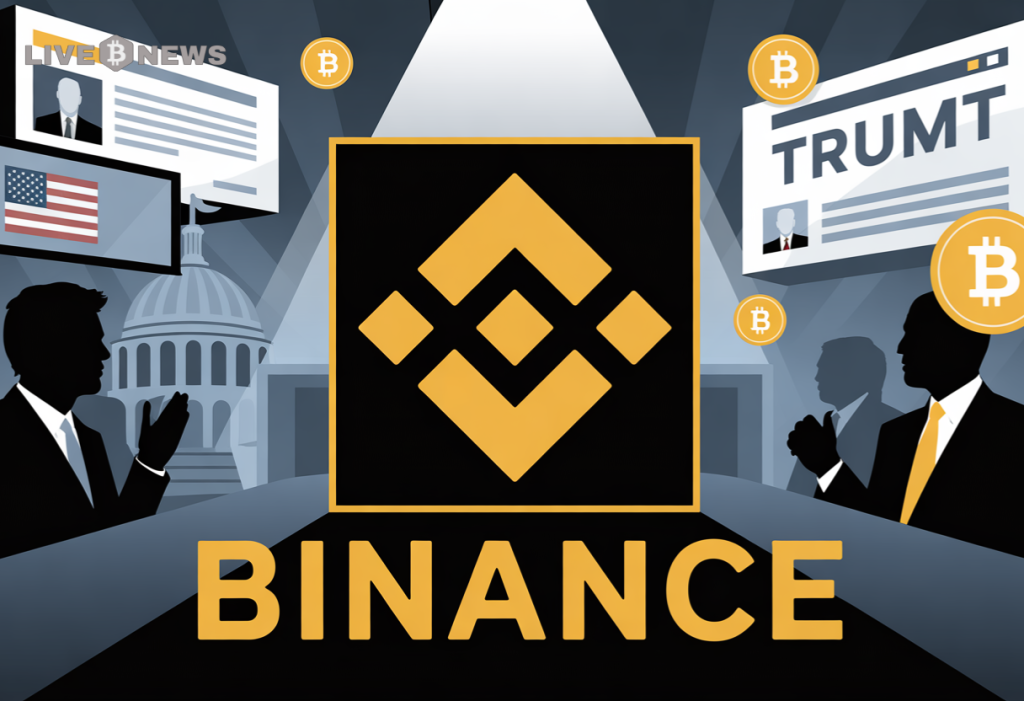Listen to the article
Former Binance CEO Zhao Denies Pardon Deal with Trump-Linked Crypto Venture
Former Binance CEO Changpeng “CZ” Zhao has firmly rejected allegations of a quid pro quo arrangement involving World Liberty Financial (WLFI) and his October 2025 presidential pardon from Donald Trump.
“That is totally wrong,” Zhao stated in a recent interview. “There was no negotiation and no dialogue. I have no business connection with WLFI.”
The controversy emerged following President Trump’s pardon of Zhao, who had previously pleaded guilty in 2023 to charges including failure to maintain an effective anti-money laundering program at Binance. The pardon immediately sparked speculation about potential underlying deals.
The Wall Street Journal and other outlets reported that Binance had allegedly backed WLFI, a cryptocurrency venture with Trump family connections. Reports suggested a $2 billion investment involving the United Arab Emirates’ Abu Dhabi-based MGX was negotiated using USD1, a stablecoin from WLFI, implying this transaction may have influenced the pardon decision.
Current Binance CEO Richard Teng has also stepped in to counter these allegations, clarifying that the choice to use USD1 stablecoin in the MGX transaction was made by MGX, not Binance. “These claims are categorically false,” Teng emphasized, aligning with Zhao’s denial of any arrangement.
Zhao acknowledged meeting Eric Trump once at a Bitcoin conference in Abu Dhabi but insisted this encounter had nothing to do with any pardon discussions.
President Trump himself has distanced himself from the situation, stating he does not know Zhao personally and issued the pardon “on the request of a lot of very good people.” Trump characterized the original case against Zhao as an overreach by the previous administration, framing the pardon as a correction of perceived injustices.
The controversy unfolds against a backdrop of increasing legislative activity in the cryptocurrency sector. As the 2025 Congressional sessions draw to a close, senators are working to pass a bill establishing a digital asset market structure before year-end.
Senate Banking Committee staffers from both parties have recently resumed discussions after previous disagreements over Democratic proposals related to decentralized finance (DeFi) regulations. The bipartisan efforts signal recognition of the urgent need for regulatory clarity in the rapidly evolving cryptocurrency landscape.
The proposed legislation could significantly reshape the regulatory environment for digital assets in the United States. One key provision being discussed would potentially transfer primary cryptocurrency regulation to the Commodity Futures Trading Commission (CFTC), a move that industry observers believe could create a more favorable regulatory framework and potentially increase institutional participation in the market.
Regulatory clarity has been a long-standing demand from the cryptocurrency industry, which has operated in a state of uncertainty for years. Clear guidelines could potentially unlock greater investment and innovation while providing necessary consumer protections.
The Zhao pardon controversy highlights the complex intersection of politics, regulation, and finance in the cryptocurrency space. As digital assets continue to gain mainstream acceptance, the relationships between industry leaders, regulators, and political figures face increasing scrutiny.
For Binance, one of the world’s largest cryptocurrency exchanges, distancing itself from allegations of political deal-making remains critical to maintaining credibility with users and regulators alike. The firm has faced regulatory challenges in multiple jurisdictions and has been working to strengthen its compliance programs.
As the industry awaits potential legislative breakthroughs, Zhao’s denial of any pardon arrangement represents an attempt to put the controversy to rest while the broader cryptocurrency market continues navigating an evolving regulatory landscape.
Fact Checker
Verify the accuracy of this article using The Disinformation Commission analysis and real-time sources.




9 Comments
This is a complex situation with a lot of moving parts. I appreciate Binance’s efforts to provide clarity, but I’ll reserve judgment until we see more concrete evidence one way or the other.
The alleged connection between Binance, a Trump-linked crypto venture, and a presidential pardon is certainly eyebrow-raising. I’m curious to see how this story develops and what other details may emerge.
The use of a Trump-linked crypto venture’s stablecoin in a large investment deal does raise some eyebrows, though. I’m curious to learn more about the details and Binance’s relationship with this company.
Yes, the stablecoin connection is certainly intriguing. I’ll be watching closely to see if any more information comes to light about Binance’s involvement with this crypto venture.
Maintaining transparency and public trust is crucial for a major crypto exchange like Binance. I’m glad to see them addressing these allegations directly, but I’ll be following this closely to see what else comes to light.
I’m glad the current Binance CEO is weighing in to counter the claims. Maintaining public trust is crucial for a company in the crypto space, so addressing these kinds of rumors head-on is the right move.
Absolutely. Binance needs to be proactive in addressing any potential conflicts of interest or shady dealings, real or perceived. Staying on top of these kinds of allegations is important for their credibility.
It’s good that Binance is trying to get ahead of these allegations and provide clarity. Transparency is important, especially for a major crypto exchange like Binance that handles huge sums of money.
Interesting development. It’s good to hear Binance CEO Zhao deny the pardon deal rumors. Allegations of quid pro quo arrangements are always concerning, so it’s important to get the facts straight.